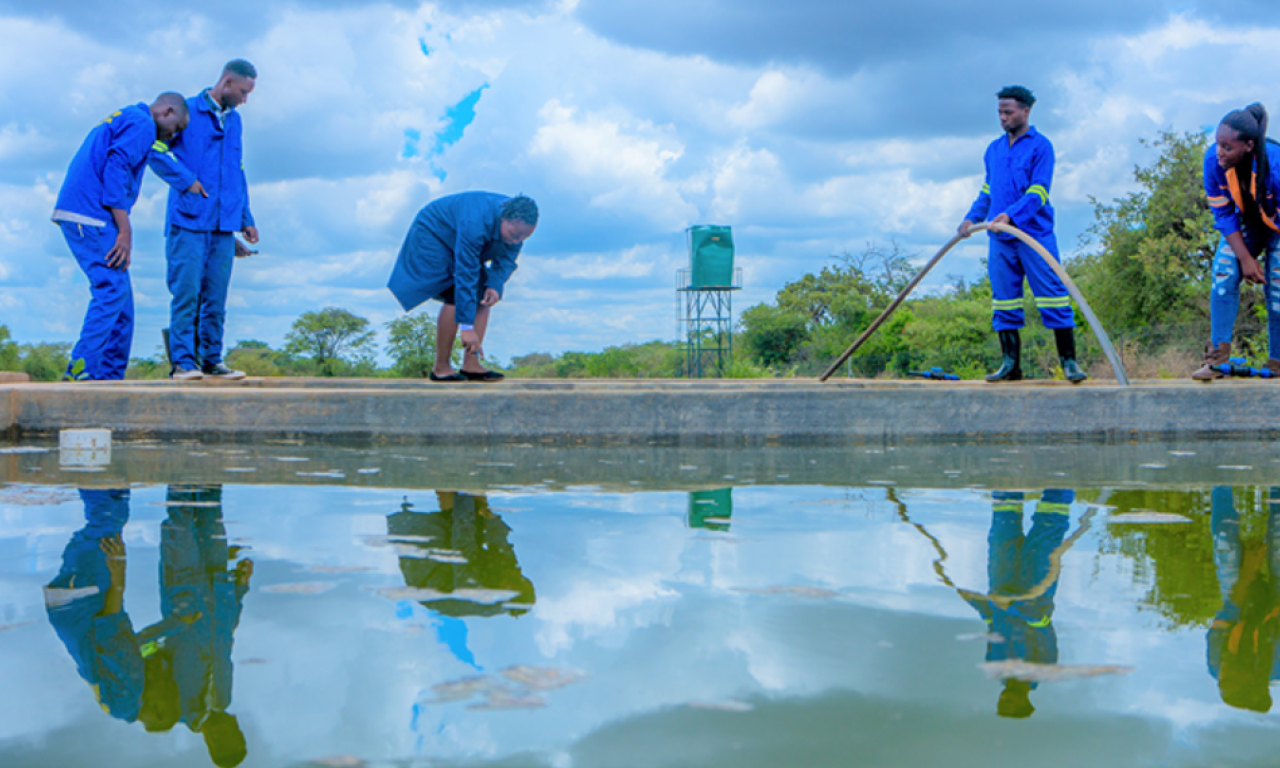
- Specialized university curriculums were updated and revised to better prepare youth for a future in aquaculture
- The revision was made possible through the WorldFish-led Aquaculture Technical, Vocational, and Entrepreneurship Training for Improved Private Sector and Smallholder Skills project
While Zambia’s aquaculture sector is growing considerably, which is largely contributed to the rapid development of the private sector, a lack of training and experience among young producers is preventing the sector from reaching its full potential.
Technical education, vocational and entrepreneurship training institutes (TEVET) offering aquaculture programs are thus working to provide knowledge and skills to youth in order to shape the industry’s inclusive and productive future.
The Natural Resources Development College (NRDC), an agricultural training institution run by the Ministry of Agriculture, is one of the first institutions in the country to offer TEVET training in aquaculture via a three-year diploma program in fisheries and aquaculture.
The Fisheries and Aquaculture program, with technical support from WorldFish and partners, recently updated its program to reflect the current status of the fisheries and aquaculture sector and focus more on hands-on training.
Though the NRDC is quite apt in developing skills amongst its students, the program lacked well-established aquaculture infrastructure and facilities where students could hone their practical skills.
The emphasis on capture fisheries and lack of practical fish farming experience proved to be inadequate in developing the skills necessary to build the nation’s aquaculture sector.
In discussions with former NRDC fisheries students working under private firms, a number of them said they faced challenges in practically applying what they learnt during their study programs. Others could not relate to the diverse local and modern aquaculture technologies that they found on the ground.
In addition, a survey conducted to understand the resource needs of private-sector aquaculture actors showed that upon employing fresh graduates, firms had to conduct in-house training to sharpen their practical skills. A number of private actors also highlighted that most college and university graduates seemed to not have had enough exposure to the real industry, as most of them preferred to work indoors in office settings rather than outdoors in the ponds.
Promoting practical experience

A fisheries program revision was implemented to address the lack of practical experience amongst graduates. The revision included: updated fisheries curricula and study content; the development of an online aquaculture-based training platform to complement traditional classroom learning; the establishment of an aquaculture skills training center where students can hone their practical skills on campus; and a novel intensive internship program.
The training facility consists of a hatchery with a production capacity of 1 million fish fingerlings per annum and a pond area with six concrete nursery units, four earthen broodstock units, four earthen production units and one earthen sedimentation pond. These facilities provide a platform for students to gain hands-on training on a wide range of activities across the whole aquaculture cycle, from production to marketing and retail.
“Since the skills training center was commissioned last year, students have been on the ground conducting various aquaculture activities including stocking fish, handling, feeding, harvesting and general pond management,” said Masausto Sakala, a fisheries and aquaculture training officer.
Victor Mwanza, a second-year student in the fisheries and aquaculture program, is currently concluding his internship with the Department of Fisheries in Itezhi-tezhi, Central Province.
“Through the internship program, I have been able to practically apply a number of things that I have learnt in class. I am very interested in being fully equipped with all the necessary skills that will enable me to find employment shortly after my graduation. I am also considering starting up my own fish farm so I can employ others,” said Mwanza.
Apart from the Department of Fisheries, private firms are the largest stakeholders with whom students will be attached to moving forward—this will help strengthen linkages between the college and the private sector to ease knowledge and skills transfer as well as increase opportunities for students to gain meaningful employment after graduation.
The fisheries program revision was made possible with financial support from the Norwegian Agency for Development Cooperation through the WorldFish-led project Aquaculture Technical, Vocational, and Entrepreneurship Training for Improved Private Sector and Smallholder Skills. The overall objective of this project is to increase the capacity of the private sector and smallholder commercial fish farmers via enhanced aquaculture knowledge and up-to-date practical skills, thus helping to sustainably grow the sector and promote inclusivity.
